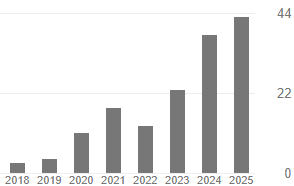The Comparison of InnoSAT Attitude Control Performance with the Impact of Delay Using PID-Lead, MPC-Lead, and MPC-PDLead Controllers
Keywords:
Attitude Control System, InnoSAT, Mean Square Error, MPC-Based ControllersAbstract
The development of space technology is increasingly regarded as a strategic indicator of national progress, and Malaysia is among the emerging nations actively investing in satellite research and innovation. One of the critical challenges in satellite operations is maintaining stable attitude control in the presence of orbital disturbances. This study focuses on enhancing the stability of the Malaysian Innovative Satellite (InnoSAT), a nanosatellite platform, by improving its attitude control mechanisms. InnoSAT's control performance can be affected by various real-world factors, including time delays, sensor noise, and fluctuating system gains. To replicate realistic conditions, the study incorporates delay effects into simulations of the satellite's control system. The attitude control was initially modelled using the state-space approach. Three hybrid control strategies—PID-Lead, MPC-Lead, and MPC-PDLead—were then designed and evaluated for their effectiveness in managing the Roll (ϕ), Pitch (θ), and Yaw (ψ) axes. Performance was assessed using the Mean Square Error (MSE) as the primary metric under noisy conditions. Simulation results showed that all MPC-based controllers significantly outperformed the PID-Lead controller, achieving lower MSE values across all axes. Among them, the MPC-Lead and MPC-PDLead controllers demonstrated superior noise resilience and faster convergence to steady-state conditions. These findings suggest that MPC-based approaches offer a more robust and accurate solution for InnoSAT's attitude control, particularly under the influence of real-world disturbances.
Downloads
Published
How to Cite
Issue
Section
License
Copyright (c) 2025 Politeknik & Kolej Komuniti Journal of Engineering and Technology

This work is licensed under a Creative Commons Attribution-NonCommercial-NoDerivatives 4.0 International License.







